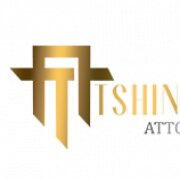Best Nonprofit & Charitable Organizations Lawyers in Thohoyandou
Share your needs with us, get contacted by law firms.
Free. Takes 2 min.
List of the best lawyers in Thohoyandou, South Africa
About Nonprofit & Charitable Organizations Law in Thohoyandou, South Africa
Nonprofit and charitable organizations in Thohoyandou, like in the rest of South Africa, play a crucial role in addressing societal needs by providing support and services in areas such as education, health, and social development. These organizations are governed by specific laws and regulations to ensure transparency, accountability, and proper management of resources. Key statutes include the Nonprofit Organisations (NPO) Act (Act 71 of 1997) and the Companies Act of 2008 for those registered as nonprofit companies. These laws aim to regulate the formation, governance, and operation of nonprofits to ensure they fulfill their charitable missions effectively.
Why You May Need a Lawyer
Engaging a lawyer can be invaluable for several reasons when dealing with nonprofits and charitable organizations. Whether you're starting a new nonprofit or managing an existing one, navigating the legal requirements is critical.
- Setting Up a Nonprofit: A lawyer can help draft your founding documents and ensure compliance with statutory registration requirements.
- Governance Issues: Legal advice is crucial for drafting bylaws, managing board responsibilities, and handling any internal disputes.
- Tax Considerations: Ensuring your organization meets the criteria for tax exemption under the South African Revenue Service (SARS) is vital.
- Regulatory Compliance: Lawyers provide guidance on maintaining compliance with reporting requirements and changes in legislation.
- Contractual Agreements: Lawyers can help draft and review contracts with donors, partners, and service providers.
- Intellectual Property: Protection of your organization’s name and branding requires legal counsel.
- Grant Applications: Legal support can be beneficial in understanding and drafting grant agreements and proposals.
Local Laws Overview
In Thohoyandou, nonprofit and charitable organizations must adhere to both national and local legal frameworks. The Nonprofit Organisations Act requires organizations to register with the Department of Social Development to gain legal recognition and certain benefits. Registration requires submitting a founding document and present annual reports. Additionally, organizations that aim to benefit from tax exemptions must register with SARS as Public Benefit Organizations (PBOs) under Section 30 of the Income Tax Act.
The Companies Act allows for the registration of Non-Profit Companies (NPCs), offering a suitable structure for organizations with a not-for-profit objective. Regulations also require organizations to keep proper financial records and conduct annual audits depending on their public interest score, to ensure transparency and accountability.
Frequently Asked Questions
What is the difference between an NPO and an NPC?
An NPO is registered under the Nonprofit Organisations Act and focuses on voluntary, association-based structures, while an NPC is registered as a company under the Companies Act with a not-for-profit objective.
What are the benefits of registering my nonprofit?
Registration provides a formal legal status, which can enhance credibility, enable engagement with donors, allow access to grants and funding opportunities, and qualify for tax exemptions.
Do I need to register my nonprofit with both the NPO Directorate and SARS?
To obtain legal status as an NPO, you must register with the Department of Social Development. To enjoy tax exemptions, registration with SARS as a Public Benefit Organization is necessary.
What are the reporting requirements for an NPO?
NPOs must submit annual narrative and financial reports to the Department of Social Development to maintain their registration status.
Can a board member be held personally liable for the organization’s debts?
Typically, board members are not personally liable, provided they act within their legal capacity and do not commit fraud, gross negligence, or other culpable acts.
What is required to change the name of my organization?
A special resolution by the governing body is necessary, and you must notify and update the relevant registering authorities.
Are foreign donations taxable?
Donations to a registered PBO for specific public benefit activities are generally tax-exempt, but it's advisable to seek legal assistance to ensure compliance with all regulations.
How can my organization ensure compliance with local labor laws?
Consulting with a lawyer to draft employment contracts and policies in compliance with the Basic Conditions of Employment Act and Labour Relations Act is crucial.
What steps should be followed for the dissolution of an NPO?
Dissolution requires following the procedure outlined in your founding document, including settling debts and distributing remaining assets according to legal requirements or charitable purposes.
Can I pay board members for their role?
While payment is generally discouraged to ensure board impartiality, reasonable compensation for specific services provided is permitted, subject to donor or funder conditions and board approval.
Additional Resources
Here are some helpful resources for individuals seeking more information on nonprofit and charitable organizations in South Africa:
- Department of Social Development: Oversees NPO registration and provides guidance on compliance.
- South African Revenue Service (SARS): Provides information on tax exemptions for nonprofits.
- Companies and Intellectual Property Commission (CIPC): Assists with registration of Non-Profit Companies.
- Local Legal Clinics: Offer pro bono legal services for nonprofits on various legal issues.
- Legal Aid South Africa: Provides access to legal advice and representation for eligible nonprofits.
Next Steps
If you are considering legal assistance for your nonprofit or charitable organization, the following steps can guide you:
- Conduct a Preliminary Assessment: Define your legal needs and the specific areas where you require assistance.
- Seek Referrals: Ask for recommendations from other nonprofit organizations or local legal associations.
- Research and Select a Lawyer: Look for lawyers or law firms specializing in nonprofit law in Thohoyandou.
- Prepare Documentation: Assemble key documents such as founding documents, reports, and any relevant correspondence.
- Initial Consultation: Contact your chosen lawyer for an initial consultation to discuss your legal needs and plan a course of action.
- Formalize Legal Representation: Confirm your engagement with the lawyer and ensure you understand the terms of service and fees.
Lawzana helps you find the best lawyers and law firms in Thohoyandou through a curated and pre-screened list of qualified legal professionals. Our platform offers rankings and detailed profiles of attorneys and law firms, allowing you to compare based on practice areas, including Nonprofit & Charitable Organizations, experience, and client feedback.
Each profile includes a description of the firm's areas of practice, client reviews, team members and partners, year of establishment, spoken languages, office locations, contact information, social media presence, and any published articles or resources. Most firms on our platform speak English and are experienced in both local and international legal matters.
Get a quote from top-rated law firms in Thohoyandou, South Africa — quickly, securely, and without unnecessary hassle.
Disclaimer:
The information provided on this page is for general informational purposes only and does not constitute legal advice. While we strive to ensure the accuracy and relevance of the content, legal information may change over time, and interpretations of the law can vary. You should always consult with a qualified legal professional for advice specific to your situation.
We disclaim all liability for actions taken or not taken based on the content of this page. If you believe any information is incorrect or outdated, please contact us, and we will review and update it where appropriate.











